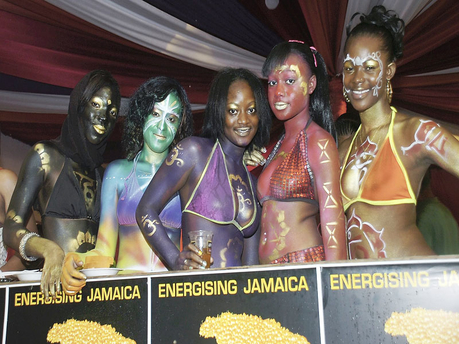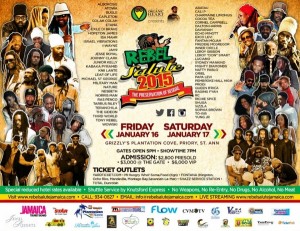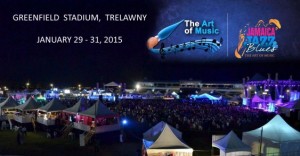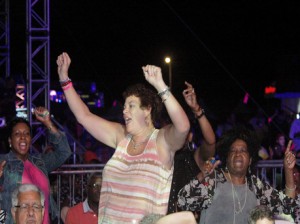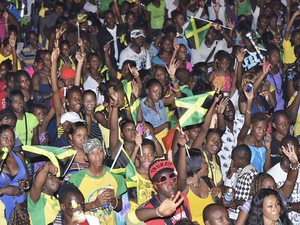It is no secret that the entertainment business is a great way to legitimise money that has been accumulated through crime – to wash the cash, if you will. It is not specific to Jamaica, although our history of growing marijuana, being an ideal transshipment point for cocaine en route to North America, and an incredible volume of recorded and performed music output makes us especially visible in this regard.
So, that is one explanation for the obvious hard, liquid cash which floats around the country on stages, in clubs, dancehalls and street parties. And let us not forget the sponsorship dollar, as it seems there is hardly an event these days without the banner or illuminated signage of some corporate entity’s brand prominently displayed.
NOT CHEAP
However, that does not explain the crowds which turn up to the unending series of events across the country. And they are not cheap. The large outdoor concerts in the country for 2015 started last night with Rebel Salute in St Ann, and while there is a strong argument for it being good value for money because of the length and depth of the line-up each night, taken as a fraction of one’s income, the ticket price is significant.
General entry for each night is $2,800 presold and $3,000 at the gate, with VIP costing $6,000. If we double each price, for a minimum of two people attending together, then it starts to add up. Put in food and drinks, transportation and, for some people, accommodation, and it is a hefty sum.
I believe it is good value – Rebel Salute is my kind of event.
But the Salute ticket prices pale to another experience in two weeks’ time further along the highway in Montego Bay. The general admission Jazz & Blues ticket prices in US currency (you can use your cell phone to do the conversion) are US$80 for the first and third nights and US$120 for the second. Want to go VIP? It is US$120 for Thursday and Saturday and US$220 for Friday.
I won’t even get into the details of the multi-day passes, where it ranges from US$190 (general, weekend) to US$450 (season VIP). Add US$20 if you will.Forget about even me thinking about if it is good value or not – I cannot even pay the parking fee plus gas to and from Kingston. Forget about going in.
It goes on and on, with the most extreme being the summer party series. Put it this way, there are companies which offer loans to people so they can go drink all they can at a string of parties on the North Coast. So one company could report in early August last year that it had already disbursed $1.6 million in party loans.
That’s a hell of a lot of money to flush down the toilet, which is where the booze ends up.
Sumfest, which has the same multi-night set-up as Jazz and Blues; Sting, which is in a class by itself – the entry fees are not chump change. Carnival season with the weekly parties, then the costumes for the Road March add up to a pretty penny. Call it a contribution if you will, but many of the gospel events still cost. Then there are the clubs, the all-inclusive parties, and the slew of high-priced events between Christmas and New Year’s Eve. It goes on and on and on, one heck of a near non-stop party in a pauper country.
Still, the events are full, even though promoters invariably give away many tickets, party people are smiling, and I am left wondering where the heck the money is coming from. How can the economy be in such a bad state – as always – yet a significant section of the population is having a jolly good time – as always?
JAMAICA’S PROBLEM
Even though I work as an entertainment writer, so all this partying and performance provides me with a job, it says something about our mindset. I am reminded of something I read in the early 2000s, at a time when Trinidadian companies were buying heavily into Jamaica. A Trini company representative and a Jamaican company exec walked into a bank and one of the security guards there was sporting the then latest, most bling cell phone. The Trini remarked to the effect that it was a general problem with Jamaicans – champagne taste and bag juice pockets.
Add to the champagne specific brands like Moet and Hennessey, plus loads of Magnum, Guinness and whatever other brew is selling.
Is there an economy I don’t know about? Chances are, but how it can explain year-round partying still defeats me. There are those who pay and those who are paid for, but the cash still has to come from somewhere. I suspect it bowls the tax collectors over as well. It would be interesting to know how many of the promoters, for one-off events as well as those who do it as a consistent side job or full-time employment, file returns.
It is highly likely that it is not only the high-profile entertainers whose names are plastered over the press from time to time for being in arrears, who are not the only ones whose partying is not paying off for the public.






